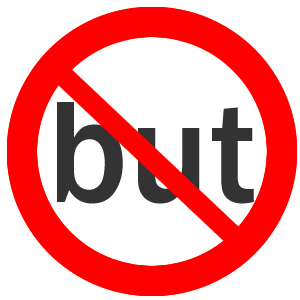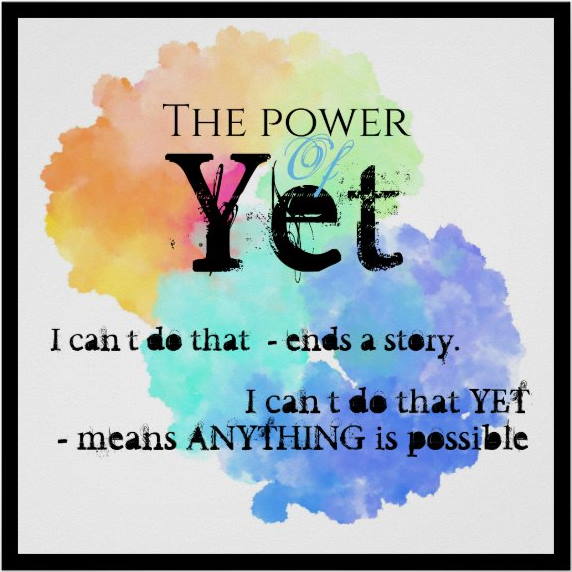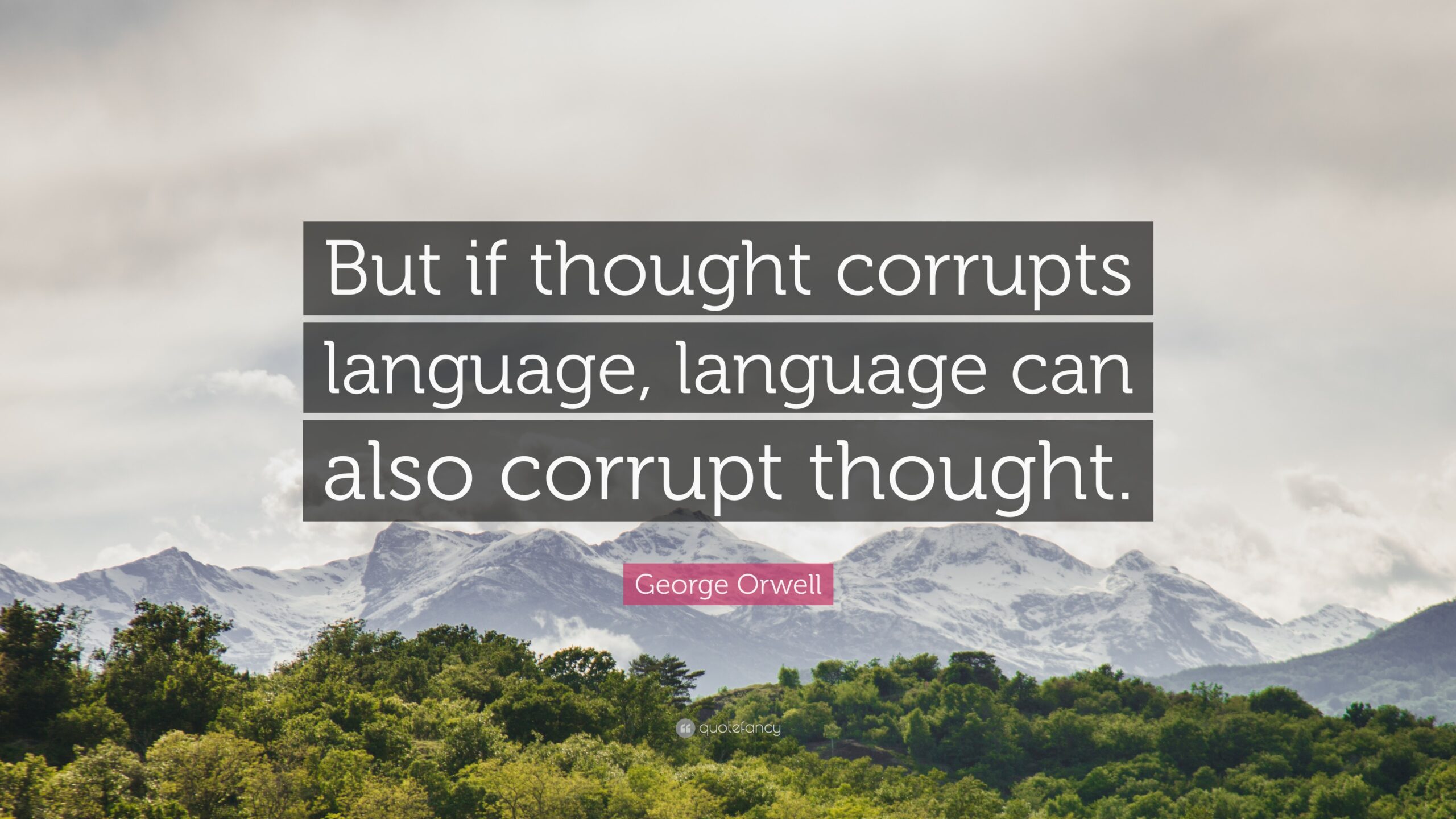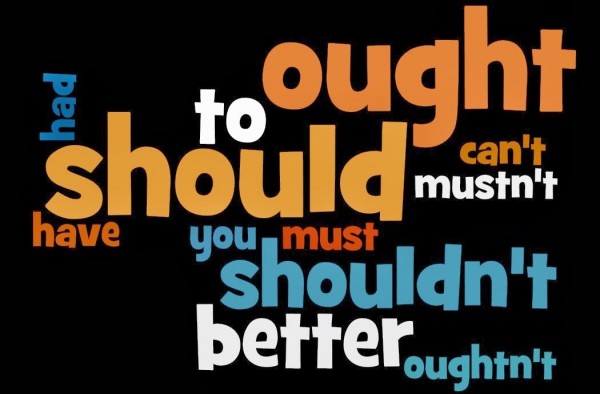Have you ever been told that when you use the word “but” in a sentence it cancels out everything you said before it? That’s actually a true fact. When our brain hears the word “but” it focuses on what comes next and almost forgets about the first part of the sentence. Let’s look at a few examples:
- “Your essay is great but you need to work on your grammar a bit more.” This is an old communication strategy to put a criticism or constructive statement after a positive statement. It was meant to soften the criticism and make it easier for the other person to receive. The reality is that all the person hears is the criticism; the use of the “but” cancels out the positive statement at the beginning entirely and the person is left feeling like their work is not good enough to meet the speaker’s standards. We can fix this statement easily: replace “but” with “and” and flip the sentence. “You need to work on your grammar a bit more and your essay will be great!”
- “I’m sorry I yelled at you but you need to stop pushing my buttons.” In this example the apology is lost with the use of the word “but”. The last part of the sentence puts the responsibility for your yelling on the other person who pushed your buttons. In reality you are responsibility for your own actions and responses to other’s behaviour. This is often a phrase we hear said by parents to kids which actually puts the blame on the child and doesn’t model taking responsibility for your own actions – pretty much the opposite of what we want to teach kids! We can fix this statement by ending the sentence before the “but” and use a second sentence to express ourself better, keeping the responsibility for our actions on us. “I’m sorry I yelled at you. I will work at controlling my anger better.”
- “I know you tried your best but next time you need to work harder.” Again, in this example, the use of the word “but” negates the acknowledgment of effort in the first part of the sentence. All the other person hears is that their effort wasn’t good enough because the result wasn’t what was wanted. If I tried my best, there is no possibility of working harder because I already did the best I was capable of. That means the first part of the sentence is a lie and the speaker doesn’t “know” I tried my best; they’re just placating me which makes me feel even worse about myself. To fix this statement we can end the sentence before the “but” or replace the “but” with an “and” while changing the last part of our sentence. “I know you tried you best and you had worked hard.”
There’s another way that “but” causes us difficulty. The use of “but” in sentences often signifies a conflict or problem and places our focus on that problem or conflict, ending our thought there. This gets us stuck in negative thinking. Let’s look at these examples:
- “I really want to go to the party but I have to do my homework.” This focuses our attention on the homework and sets the homework up as a problem and obstacle to our having fun leading us to feel negative and stuck. We can easily shift our mindset from this problem focused mindset to a more problem-solving mindset just by changing “but” to “and”. “I really want to go to the party and I have to do my homework.” Now the homework is a step to do first, not an obstacle.
- “I want to learn to knit but it’s so hard!” In this example the “but” is pointing out the obstacle to our learning a new skill and robs us of our motivation. The fix is changing the “but” to an “and”. “I want to learn to know and it’s so hard!” Now the difficulty is a challenge, not an obstacle.
- “I’m leaving to go away for the weekend but I have to get gas first.” This puts a negative slant on the statement and again focuses on the obstacle to our goal. We can shift from an obstacle-focused mindset to a process-focused mindset by switching “but” with “and”. “I’m leaving to go away for the weekend and I have to get gas first.” Now this is just a step we can work into our day rather than an obstacle getting in our way.
Changing “but” to “and” is such a small change and can have a huge impact on our mindset as well as our communication skills and relationships. Take this week to try this out for yourself and let us know what you think!




